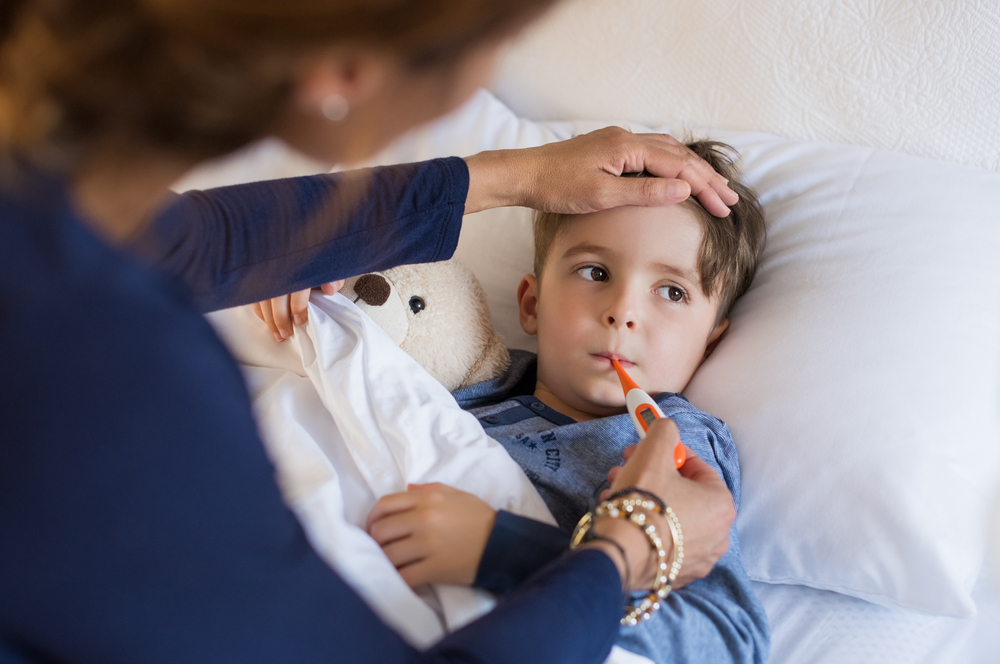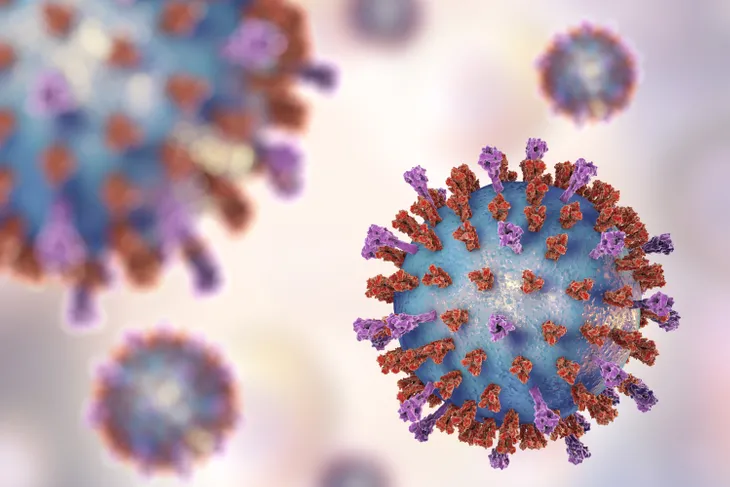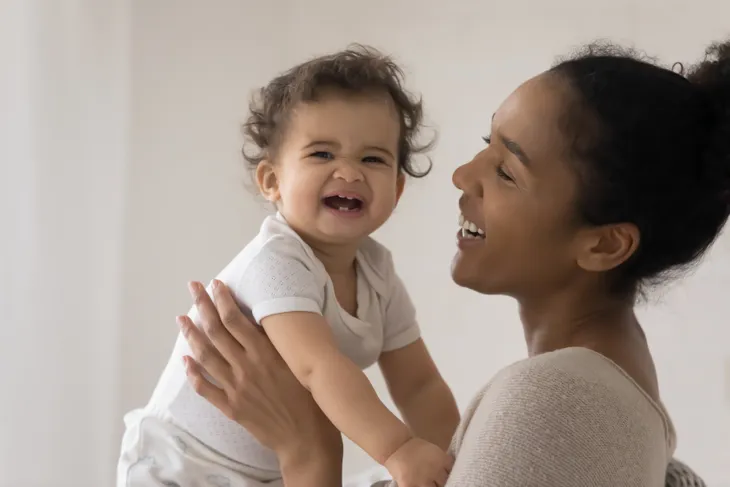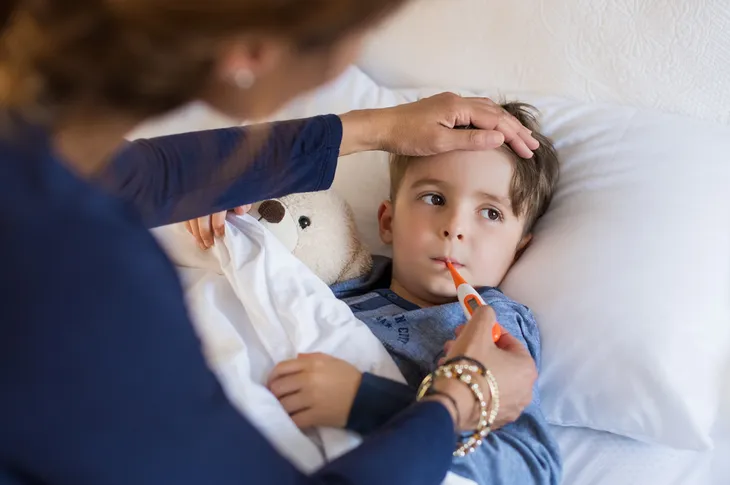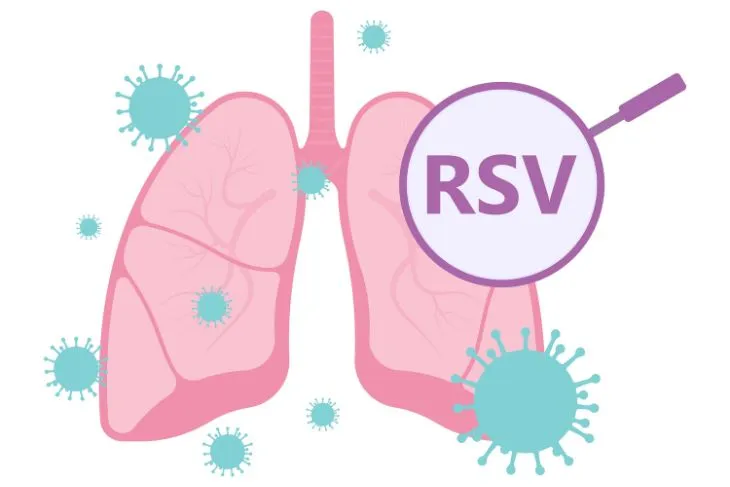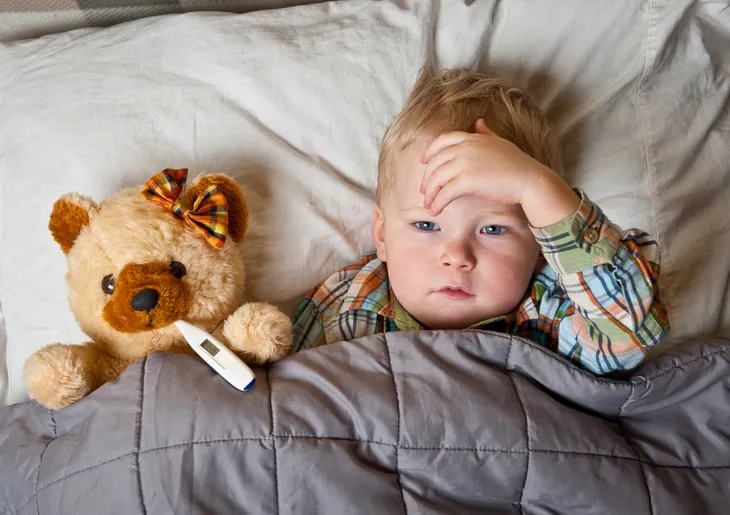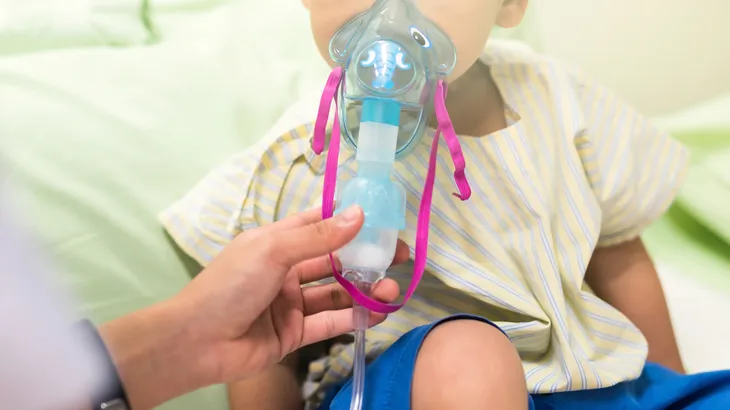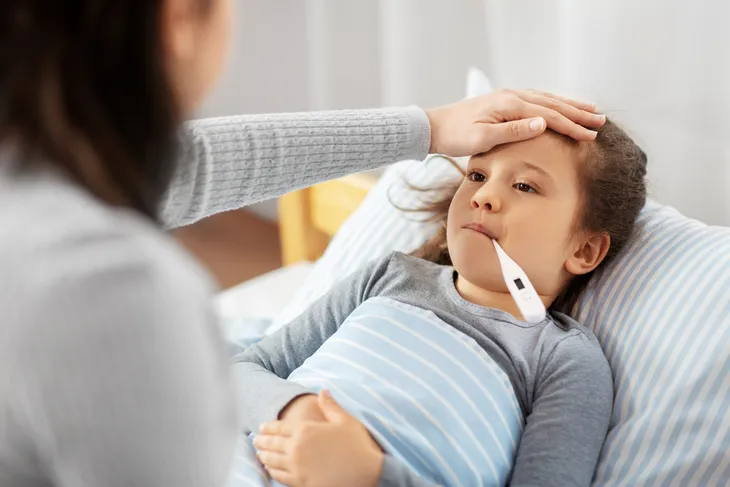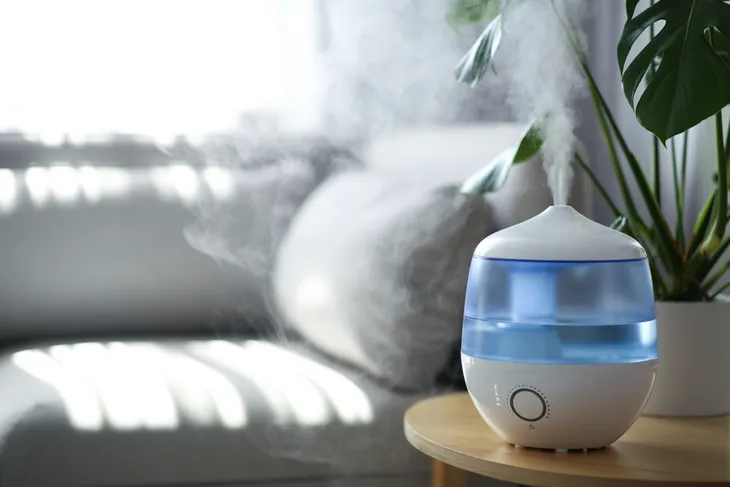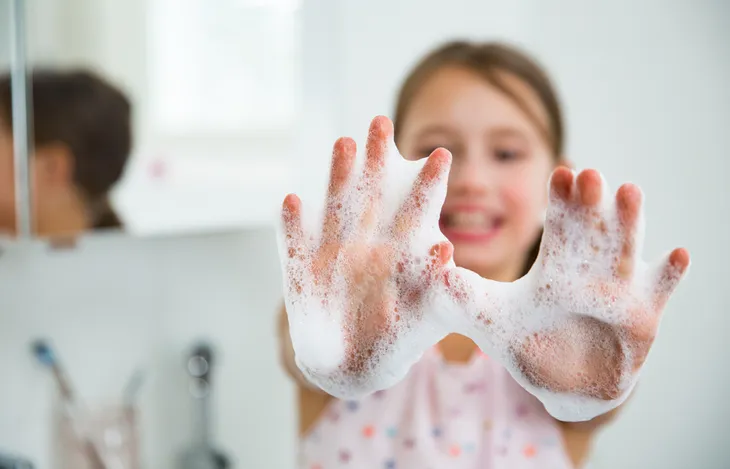- RSV is a common respiratory virus that typically affects children but it can affect adults too.
- While it’s typically mild, it can be more serious in infants and young children, seniors, and any other individuals with a compromised immune system.
- RSV can develop into more serious infections so it’s important to know the signs and seek emergency care if they develop.
Respiratory syncytial virus (RSV) is a common respiratory virus. It typically causes mild cold-like symptoms that resolve on their own. Many people recover within a week or so, however, it can also be more serious for some people, namely infants and older adults.
In fact, the Centers for Disease Control and Prevention (CDC) says that roughly 58,000 to 80,000 children under 5-years old are hospitalized each year in the United States due to RSV. So, how do you know when RSV is an emergency? Let’s find out.
What Is RSV?
Respiratory syncytial virus (RSV) is a common respiratory virus that causes an infection of the lungs and airways. In fact, it’s so common, experts say most children get it at least once before the age of 2.
According to the American Lung Association, RSV spreads from person to person through close contact with an infected individual. It can be passed through secretions from coughing and sneezing, or by touching objects (such as toys or doorknobs) that have the virus on them. It can also spread through dried respiratory secretions on similar items. The source also notes that the RSV peak season in the U.S. is fall through spring.
Who’s At Risk?
While RSV is most common in children, it can also affect adults. Symptoms are typically mild in older, healthy children, as well as adults, but they can be more severe in very young children and seniors. According to the CDC, the following individuals are at a greater risk for severe illness from RSV:
- Premature infants
- Infants, especially infants 6-months and younger
- Children with weakened immune systems
- Children under two with chronic lung disease or congenital heart disease
- Children with neuromuscular disorders (such as those who have difficulty clearing mucus or swallowing)
- Seniors
- Anyone with a weakened immune system
The Early Signs of RSV
Early symptoms of RSV typically mimic symptoms of the common cold. It’s also common for the infection to be mild at first before it turns severe in some individuals. The CDC says, symptoms typically appear 4- to 6-days after being infected. Be on the lookout for these early warning signs of RSV:
- Runny nose
- Coughing
- Sneezing
- Decrease in appetite
- Fever
- Wheezing
The source also notes that the symptoms typically appear in stages instead of all at once.
Health Complications of RSV
While RSV can cause a mild infection in some people, those at risk may develop more severe infections. The CDC says that RSV may cause severe infections like bronchiolitis, which is an inflammation of the small airways in the lung.
RSV may also develop into pneumonia, which is an infection of the lungs. Both bronchiolitis and pneumonia can be very serious for small children and seniors, as well as anyone with a compromised immune system.
Warning Signs That May Indicate RSV Is an Emergency
So, how do you know if you need to take your child or loved one to the emergency room for RSV? The Ministry of Health says RSV is an emergency if:
- Your child has difficulty breathing. Be on the lookout for signs that they’re breathing faster than normal or working hard to breathe.
- Your child has pale skin, lips, or nail beds that appear white or blue.
- Your child has a high fever.
- Your child is dehydrated.
Emergency Signs in Very Young Infants
It’s important to note that very young infants (less than 6-months old) don’t always show the same telltale signs of RSV as older children and adults. So it’s important to know the signs and seek emergency care if they develop. The CDC says to be on the lookout for these emergency signs:
- Decreased activity
- Decreased appetite
- Pauses in breathing for more than 10-seconds, known as apnea
- Irritability
The Ministry of Health also notes that you should be on the lookout for fever or signs that they’re very sleepy and/or are difficult to wake. Repeated vomiting is also a concern. If they can’t keep liquids down for 8-hours or more, seek emergency care. You should also watch for signs of dehydration, which can appear as dry mouth or no urination for 8-hours or more. Another emergency sign is blood in their vomit or stool.
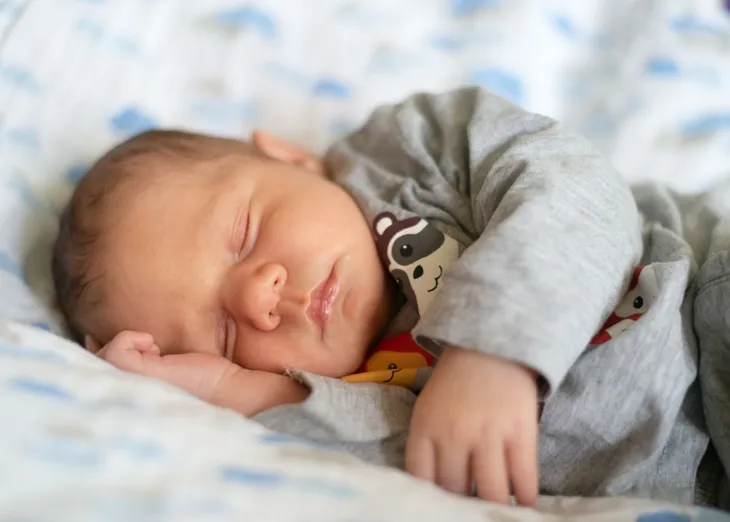 Foto-Sabine / Shutterstock
Foto-Sabine / ShutterstockWhat to Expect
The CDC notes that most healthy adults and children with RSV don’t need to be hospitalized as the infection is often mild. But if your child or loved one is showing any emergency signs, take them to the ER right away.
Individuals at risk or young children may need to be hospitalized if they are having difficulty breathing or are dehydrated. If you’re unsure, play it safe and call your doctor right away for medical advice or take them to the ER.
How Is RSV Treated in the Hospital?
If your child or loved one is hospitalized for RSV they may receive oxygen if they’re having difficulty breathing. The CDC also notes that intravenous (IV) fluids may also be necessary, especially if they’re dehydrated or not eating enough.
In rare cases, intubation may be necessary. This involves inserting a breathing tube through the mouth and down to the airway. The breathing tube is connected to mechanical ventilation, which is a machine that helps the individual breathe. The source also notes that hospitalization for RSV typically lasts a few days.
Can RSV Be Treated at Home?
When RSV is mild and your loved one isn’t at risk, RSV can often be treated at home. Just make sure they can breathe comfortably, they’re drinking and urinating regularly, and their skin doesn’t appear pale or blue. Mild cases of RSV typically resolve within a week or two.
Luckily, there are things you can do to help your child feel more comfortable while they recover. First, you’ll want to manage their pain and fever. This can often be managed with age-appropriate over-the-counter (OTC) medication. However, it’s always important to consult your doctor first. Some OTC medicines contain ingredients that aren’t safe for children.
How to Prevent Dehydration
One of the serious complications of RSV is dehydration so it’s important to do what you can to keep your child hydrated. It’s common for children (and adults) to eat less while they’re sick but this can also increase the risk of dehydration.
GoodRx also points out that children are more vulnerable to dehydration than adults because they “don’t conserve water as well, and their small body size means that it doesn’t take as much fluid loss to cause dehydration.” Additionally, the source notes that children have higher body water content, which means water loss has a bigger effect on them. Luckily, there are steps you can take to help prevent dehydration including:
- If your baby or child has a decreased appetite and isn’t eating much, try to feed them more often.
- Breastfeeding babies may benefit from pumping and then feeding them from a bottle.
- Popsicles and ice pops may help improve hydration in older children.
Other Ways to Treat RSV at Home
You can also help make your child feel more comfortable by giving them a lukewarm bath. The Ministry of Health says to be sure to avoid cold baths as they can be uncomfortable and may actually raise their body temperature.
The source also notes that you should dress your child in light clothing. This may help them cool down if they have a high temperature. However, the source also says if they shiver, provide warmer clothing and then remove them when the shivering stops. Adjusting the room temperature may also help — it should be warm but not too hot. Moist air can also help them breathe, which you can achieve by running a cool-mist humidifier.
How to Protect Your Child(ren) from RSV
There are two medications available to protect infants and young children from severe RSV infections, nirsevimab (Beyfortus) and palivizumab (Synagis). These medications are not vaccines but monoclonal antibodies that can give the recipient an extra boost in fighting RSV and reducing the likelihood of developing a serious RSV infection. The CDC also recommends that adults 60 years old and older receive the RSV vaccine, Arexvy. Protecting older adults against RSV can also help reduce the spread to younger adults and children.
Another way to protect your child(ren) is to keep them home until their fever is gone and symptoms are improving for at least 24-hours or 48-hours if they were vomiting or had diarrhea. keep them home until their fever is gone and symptoms are improving for at least 24-hours or 48-hours if they were vomiting or had diarrhea.
It’s also important to clean surfaces (especially in high-traffic areas, such as door knobs, light switches, counters, and toys) that are touched often. You can also protect your children and yourself by washing your hands regularly with soap and water for at least 20-seconds. Use hand sanitizer when you’re in a pinch. It’s also important to cough or sneeze into your sleeve and throw any used tissues in the garbage immediately to help prevent the spreading of the virus.
